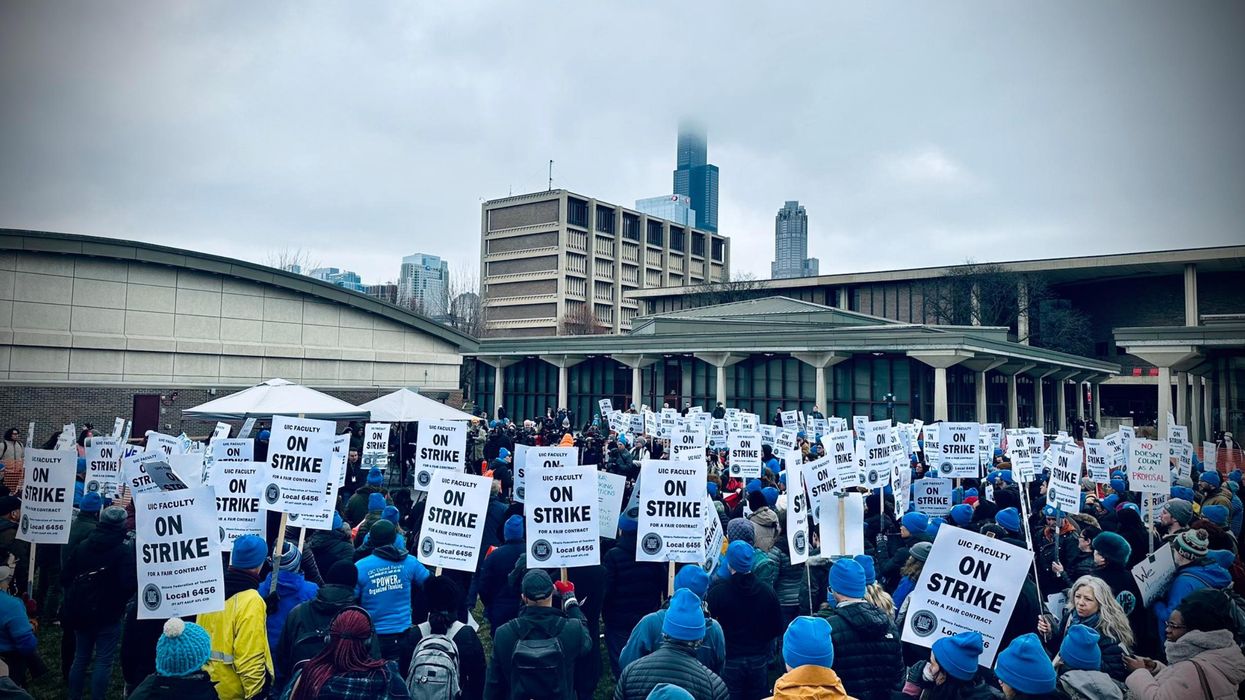"H&M's workforce deserves better working conditions and salaries," the unions said when calling the strike on June 12, as El Diarioreported, "which is why we ask you to join in the stoppages and strikes."
"We need to increase wages substantially."
The unions are negotiating on behalf of more than 4,000 workers at H&M brands including H&M, Cos, and Other Stories, The Associated Press reported. The unions want the retail giant to improve staffing after H&M laid off 400 workers in 2021 during the Covid-19 pandemic, according to El País. The shortages have put additional strain on the remaining employees, most of whom are part time. Further, the unions want the company to offer more hours and improve wages, which are set by many different provincial agreements and as low as the minimum in some places.
"H&M workers in Spain earn less than 1,000 euros a month," 42-year-old worker Santiago Sanza said while protesting in front of a Madrid store on June 20, as Reuters reported, adding that most employees only netted 24 hours a week.
"We need to increase wages substantially," Sanza said.
Union leader Ángeles Rodríguez Bonillo said that low salaries had been made harder to bear with inflation, which is at 2.9% in Spain, according to the AP.
"Salaries that have been frozen for many, many years," Bonillo said, but the status quo had become intolerable "with the economic situation and the high cost of living."
The unions have been negotiating with H&M since January, El País reported. The store said it had offered to improve staffing and hours and implement a rewards-based pay system, but the unions said their proposals were "too abstract."
"The company has not put forward a single solution to the issues we raised," the unions said in their June 12 strike announcement, as El Diaro reported, "because of which we have decided to plan protests so that the company will understand the extent of the workforce's plight."
The UGT and CCOO initially announced three actions: partial work stoppages June 20 lasting from 11:00 am to 1:00 pm local time and again from 8:30 to 10:30 pm, a full 24-hour strike June 22, and another 24-hour strike June 26.
The strike action went ahead after negotiations derailed June 19 following a 12-hour session, according to the AP and Reuters.
During the June 22 strike, 80% of the workforce participated, shuttering around 95 stores, Reuters reported Friday.
"In general, there's been a lot of success," a CCOO spokesperson told El País, adding that the walkout had closed all the H&Ms in Fuerteventura, Asturias, Jaén, Murcia, Granada, Alicante, and Málaga, with only one store open in both Madrid and Barcelona.
The unions have since announced that strikes will continue July 1 and 8.
"The strike is extended because negotiations are blocked," union leader Maria de los Angeles Rodriguez said, as Reuters reported Friday.
"This move by management in Spain is not an isolated example."
UNI Europe, which represents service workers in the European Union, said H&M's actions in Spain, from the part-time hours to the stalled negotiations, reflected continental trends.
"This move by management in Spain is not an isolated example," UNI Europe regional secretary Oliver Roethig told the AP. "Even in the company's home country of Sweden, workers are being pushed into the precarity of zero-hour contracts."
At the same time, the company has become less willing to compromise.
"From Sweden to Spain, we are seeing that they are adopting a more conflictual approach to labor relations recently," Roethig said in a statement. "Workers and their unions will not allow management to cut hours and normalize low pay in a bid to divert income away from workers and towards profits. We urge management to rethink their approach."



